22 Aug 2014 | About Index, Events, United Kingdom
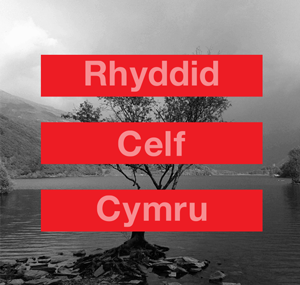 Mae Index on Censorship yn falch o gyhoeddi yr ail ddigwyddiad mewn cyfres o drafodaethau ar-lein am ryddid mynegiant artistig yng Nghymru.
Mae Index on Censorship yn falch o gyhoeddi yr ail ddigwyddiad mewn cyfres o drafodaethau ar-lein am ryddid mynegiant artistig yng Nghymru.
Mae’r trafodaethau yn ran o raglen sydd yn edrych ar sut y mae rhyddid artistig yn cael ei ystyried, ei gefnogi, ei drafod a’i hyrwyddo ar draws y sector gelfyddydol, yn y cyfryngau, gan y cyhoedd, gan ariannwyr ac gan wnaethurwyr polisi yn y DU.
Artistiaid yn gweithio yn y Gymraeg – cyfleon a rhwysterau i fynegiant.
Trafodaeth ar-lein gyda:
- Mari Emlyn – Cyfarwyddwraig Artistig Galeri.
- Arwel Gruffydd – Cyfarwyddwr Artistig Theatr Genedlaethol Cymru.
- Bethan JonesParry – Darlledwraig, Newyddiadurwraig ac Ysgrifennwraig.
- Bethan Marlow – Dramodwraig a Storïwraig.
- Iwan Williams – Cynhyrchydd Creadigol Annibynol a Swyddog Datblygu Creadigol Mentrau Iaith Cymru.
Pan: Awst 26ain 11.30yb
Ble: Google Hangout yma
Sylwer bydd y drafodaeth yn Gymraeg gyda chrynodeb Saesneg ar y diwedd.
Dyma’r ail o bedwar digwyddiad rydym yn eu ffrydio’n fyw yn ystod yr hafa fydd yn arwain at symposiwm am ryddid mynegiant artistig yng Nghymru yng Nghanolfan Celfyddydau Chapter, Caerdydd (27 Tachwedd). Bydd modd i chi anfon cwestiynnau drwy system holi ac ateb Google Hangout neu drydar y panelwyr yn ystod y drafodaeth.
Beth yw’r materion yng Nghymru? Beth yw’r cyfleon? Beth yw’r rhwystrau? Beth sydd gan ryddid mynegiant artistig i wneud gyda phrif drafodaethau celfyddydol a pholisiau – dwyieithrwydd, denu pobl ifanc a lleisiau ethnig amrywiol, ymdopi â thlodi, manteisio ar rwydweithiau diwylliannol newydd, meddu ar lais rhyngwladol?
Hoffem glywed gan bawb sydd yn cynhyrchu ac yn ymwneud â’r celfyddydau yng Nghymru ac sydd â rhywbeth i’w rannu am ryddid mynegiant. Bydd y trafodaethau hyn yn bwydo agenda y symposiwm yng Nghaerdydd a bydd pob un yn rhoi ffocws ar thema gwahanol y byddwn wedi ei ganfod yn ein hymchwil cychwynnol.
Cafodd y drafodaeth ar-lein gyntaf ei gynal ym mis Gorffennaf. Yn cymeryd rhan roedd y dramodydd Tim Price, y gantores, actores a’r ddramodwraig Lisa Jên, y bardd a’r ysgrifennwraig Kathryn Gray a’r artist gweledol Leah Crossley. Mae modd ei wylio yma https://www.youtube.com/watch?v=pNv1J0_jRQY
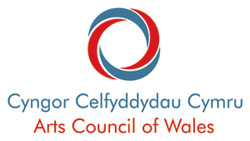
Arts Council of Wales supports this programme
9 Jul 2014 | News and features, Young Writers / Artists Programme
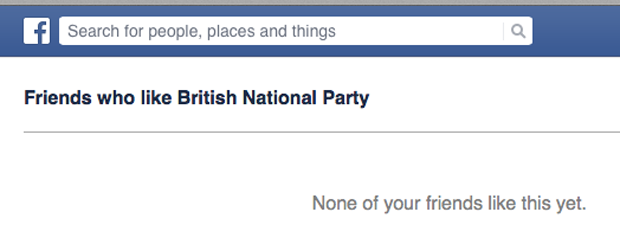
(Image: Katie Dancey)
Twitter trolls, online mobs and “offensive” Facebook posts are constantly making headlines as authorities struggle to determine how to police social media. In a recent development, links posted on Facebook allow users to see which of their friends have “liked” pages, such as those representing Britain First, the British National Party and the English Defence League. When clicking the links, a list appears of friends who have liked the page in question. Many Facebook users have posted the links, with the accompanying message stating their intention to delete any friends found on the lists. One user wrote, “I don’t want to be friends, even Facebook friends, with people who support fascist political parties, so this is just a quick message to give you a chance to unlike the Britain First page before I un-friend you.” Tackling racism is admirable, but when the method is blackmail and intimidation, who is in the wrong? All information posted on Facebook could be considered as public property, but what are the ethical implications of users taking it upon themselves to police the online activity of their peers? When social media users group together to participate in online vigilantism, what implications are there for freedom of expression?
This online mob is exercising its right to freedom of expression by airing views about right wing groups. However, in an attempt to tackle social issues head on, the distributors of these links are unlikely to change radical right-wing ideologies, and more likely to prohibit right-wing sympathisers from speaking freely about their views. In exerting their right to free speech, mobs are at risk of restricting that of others. The opinions of those who feel targeted by online mobs won’t go away, but their voice will. The fear of losing friends or being labelled a racist backs them into a corner, where they are forced to act in a particular way, creating a culture of self-censorship. Contrary to the combating of social issues, silencing opinion is more likely to exacerbate the problem. If people don’t speak freely, how can anyone challenge extreme views? By threatening to remove friends or to expose far right persuasions, are the online vigilantes really tackling social issues, or are they just shutting down discussions by holding friendships to ransom?
Public shaming is no new tactic, but its online use has gone viral. Used as a weapon to enforce ideologies, online witch-hunts punish those who don’t behave as others would want them to. Making people accountable for their online presence, lynch mobs target individuals and shame them into changing their behaviour. The question is whether groups are revealing social injustices that would otherwise go unpunished, or whether they are using bullying tactics in a dictatorial fashion. The intentions of the mob in question are good; to combat racism. But does that make their methods justifiable? These groups often promote a “with us or against us” attitude; if you don’t follow these links and delete your racist friends, you must be a racist too. Naming and shaming those who don’t follow the cultural norm is also intended to dissuade others from participating in similar activities. Does forcing people into acting a certain way actually generate any real change, or is it simply an act of censorship?
With online mobs often taking on the roles of judge, jury and executioner, the moral implications of their activities are questionable. It may start as a seemingly small Facebook campaign such as this one, but what else could stem from that? One Facebook user commented, “Are you making an effort to silence your Facebook friends who are to the right of centre?” This concern that the target may become anyone with an alternative political view demonstrates the cumulative nature of online mobs. Who polices this activity and who decides when it has gone too far?
Comments under the Facebook posts in question invite plenty of support for the deletion of any friends who “like” far right groups, but very rarely does anyone question the ethics of this approach. No longer feeling they have to idly stand by, Facebook users may feel they can make an impact through strength in numbers and a very public forum. Do those who haven’t previously had a channel for tackling social issues suddenly feel they have a public voice? Sometimes it’s difficult to accept that absolutely everyone has the right to free speech, even those who hold extreme views. In a democracy, there may be political groups that offend us, but those groups still have a right to be heard. The route to tackling those views can’t be to silence them, but to encourage discussion.
This article was posted on July 9, 2014 at indexoncensorship.org
2 Jun 2014 | Digital Freedom, European Union, News and features
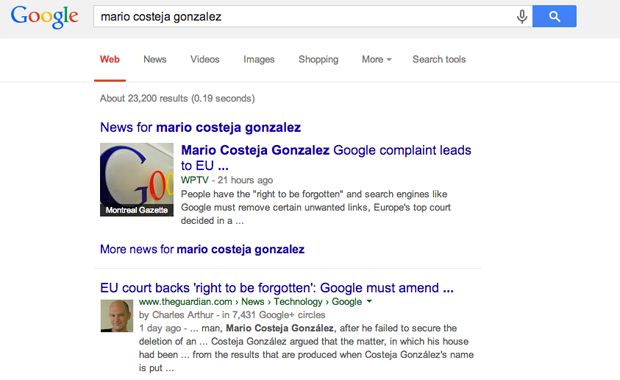
On May 13, the Court of Justice of the European Union (CJEU) held in Google Spain v AEPD and Mario Costeja González that there was a “right to be forgotten” in the context of data processing on internet search engines. The case had been brought by a Spanish man, Mario Gonzáles, after his failure to remove an auction notice of his repossessed home from 1998, available on La Vanguardia, a widely-read newspaper website in Catalonia.
The CJEU considered the application of various sections of Article 14 of EU Directive 95/46/EC of the European Parliament and of the Council of October 24, 1995 covering the processing of personal data and the free movement of such data.
A very specific philosophy underlines the directive. For one, it is the belief that data systems are human productions, created by humans for humans. In the preamble to Article 1 of Directive 95/46, “data processing systems are designed to serve man; … they must, whatever the nationality or residence of natural persons, respect their fundamental rights and freedoms notably the right to privacy, and contribute to … the well-being of individuals.”
Google Spain and Google Inc.’s argument was that such search engines “cannot be regarded as processing the data which appear on third parties’ web pages displayed in the list of search results”. The information is processed without “effecting the selection between personal data and other information.” Gonzáles, and several governments, disagreed, arguing that the search engine was the “controller” regarding data processing. The Court accepted the argument.
Attempts to distinguish the entities (Google Inc. and Google Spain) also failed. Google Inc. might well have operated in a third state, but Google Spain operated in a Member State. To exonerate the former would render Directive 95/46 toothless.
The other side of the coin, and one Google is wanting to stress, is that such a ruling is a gift to the forces of oppression. A statement from a Google spokesman noted how, “The court’s ruling requires Google to make difficult judgments about an individual’s right to be forgotten and the public’s right to know.”
Google’s Larry Page seemingly confuses the necessity of privacy with the transparency (or opacity) of power. “It will be used by other governments that aren’t as forward and progressive as Europe to do bad things. Other people are going to pile on, probably… for reasons most Europeans would find negative.” Such a view ignores that individuals, not governments, have the right to be forgotten. His pertinent point lies in how that right might well be interpreted, be it by companies or supervisory authorities. That remains the vast fly in the ointment.
Despite his evident frustrations, Page admitted that Google had misread the EU smoke signals, having been less involved in matters of privacy, and more committed to a near dogmatic stance on total, uninhibited transparency. “That’s one of the things we’ve taken from this, that we’re starting the process of really going an talking to people.”
A sense of proportion is needed here. The impetus on the part of powerful agencies or entities to make data available is greater in the name of transparency than private individuals who prefer to leave few traces to inquisitive searchers. Much of this lies in the entrusting of power – those who hold it should be visible; those who have none are entitled to be invisible. This invariably comes with its implications for the information-hungry generation that Google has tapped into.
The critics, including those charged with advising Google on how best to implement the EU Court ruling, have worries about the routes of accessibility. Information ethics theorist Luciano Floridi, one such specially charged advisor, argues that the decision spells the end of freely available information. The decision “raised the bar so high that the old rules of Internet no longer apply.”
For Floridi, the EU Court ruling might actually allow companies to determine the nature of what is accessible. “People would be screaming if a powerful company suddenly decided what information could be seen by what people, when and where.” Private companies, in other words, had to be the judges of the public interest, an unduly broad vesting of power. The result, for Floridi, will be a proliferation of “reputation management companies” engaged in targeting compromising information.
Specialist on data law, Christopher Kuner, suggests that the Court has shown a lack of concern for the territorial application, and implications, of the judgment. It “fails to take into account the global nature of the internet.” Wikipedia’s founder, Jimmy Wales, also on Google’s advisory board, has fears that Wikipedia articles are set for the censor’s modifying chop. “When will a European court demand that Wikipedia censor an article with truthful information because an individual doesn’t like it?”
The Court was by no means oblivious to these concerns. A “fair balance should be sought in particular between that interest [in having access to information] and the data subject’s fundamental rights under Articles 7 [covering no punishment without law] and 8 [covering privacy] of the Charter.” Whether there could be a justifiable infringement of the data subject’s right to private information would depend on the public interest in accessing that information, and “the role played by the data subject in private life.”
To that end, Google’s service of removal is only available to European citizens. Its completeness remains to be tested. Applicants are entitled to seek removal for such grounds as material that is “inadequate, irrelevant or no longer relevant, or excessive in relation to the purposes for which they were processed.”
An explanation must accompany the application, including digital copies of photo identification, indicating that ever delicate dance between free access and anonymity. For Google, as if it were an unusual illness, one has to justify the assertion of anonymity and invisibility on the world’s most powerful search engine.
Others have showed far more enthusiasm. Google’s implemented program received 12,000 submissions in its first day, with about 1,500 coming from the UK alone. Floridi may well be right – the age of open access is over. The question on who limits that access to information in the context of a search, and what it produces, continues to loom large. The right to know jousts with the entitlement to be invisible.
This article was published on June 2, 2014 at indexoncensorship.org
Both Google and the European Union are funders of Index on Censorship
30 May 2014 | Asia and Pacific, India, News and features
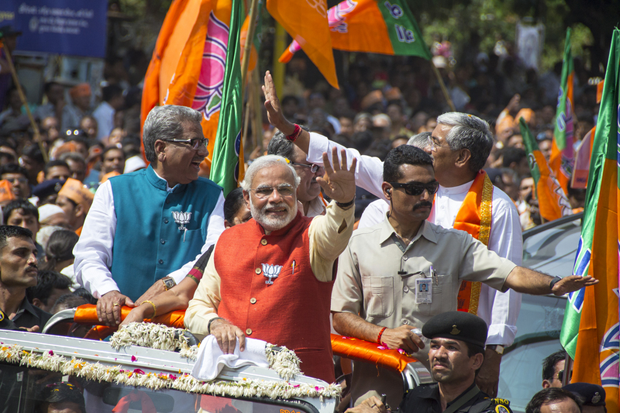
Gujarat Chief Minister and BJP prime ministerial candidate Narendra Modi filed his nomination papers from Vadodara Lok Sabha seat amid tight security on April 6. (Photo: Nisarg Lakhmani/Demotix)
An Indian man has found himself in trouble for allegedly posting a Facebook comments against Indian Prime Minister Narendra Modi. The incident raises serious doubts over online freedom in the world’s biggest democracy
On March 23, shipbuilding professional Devu Chodankar posted in the popular Facebook group Goa+, that if Modi became prime minister, a holocaust “as it happened in Gujarat”, would follow. Modi was the Gujarat chief minister during the 2002 pogrom in which more than 1000 people — most of them Muslims — were killed in communal violence. Chodankar also wrote that it would lead to the Christian community in the state of Goa losing their identity. He later deleted the post. In another Facebook group he regretted his choice of words but stood by the substance of his argument, calling it his crusade against the “tyranny of fascists”.
The incident was reported to the police in March by former chairman of the Confederation of Indian Industries in Goa Atul Pai Kane, who was close to Modi’s party Bharatiya Janata Party (BJP). He filed a First Information Report (FIR) to the police, under sections 153(A), 295(A) of the Indian Penal Code (IPC) and section 125 of the People’s Representation Act and 66-A of the Information Technology Act. Under the former, it is a crime to promote enmity between different groups on grounds of religion, race, place of birth, residence, language, etc., as do acts prejudicial to maintenance of harmony. Meanwhile, the latter makes it a punishable offence to send messages that are offensive, false or created for the purpose of causing annoyance or inconvenience.
In his complaint, Kane said that Chodankar had threatened the group members not to vote in favour of the BJP, as it would virtually make Narendra Modi the prime minister of India. “I made this complaint as Chodankar issued inflammatory statements and tried to create communal hatred. He even refused to withdraw those comments. You cannot make such comments on a public forum. There has to be a limit.”
Police summoned Chodankar for the first time on May 12, and a trial court on 22 May rejected anticipatory bail. Chodankar has left Goa to evade possible arrest. Police want to interrogate him to find out whether he had any broader intentions with his comments, and whether he had plans to “promote communal and social disharmony”.
Social activists and opposition political parties feel that lodging a police complaint over a Facebook comment is an attempt to curb individual freedom, and that such cases would become the order of the day under Hindu nationalist BJP rule. Activists also believe that this type of police action is tantamount to curbing freedom of expression, ultimately meaning that you should either stay away from social media or stop speaking your mind on such platforms.
Amitabh Pandey, a media freedom activist, said: “The message is very clear. You should know how to behave in the cyber world. If you dare to write against Narendra Modi on any social media platform then you should be ready to face the consequences.”
Indian Institute of Technology (IIT) alumnus Dr. Samir Kelekar has been actively working for the case against Chodankar to be dropped. “I feel arresting a person for making a comment against someone is too much. We don’t agree with his comments but we don’t agree with police action either. His comment is not going to affect the society in any way,” he said.
This isn’t the only such case in recent times in India. On 15 May, author Amaresh Mishra was arrested in Gurgaon, in the northern Indian state of Haryana, for posting content on Facebook and Twitter against Modi and Rashtriya Swayamsevak Sangh (RSS), a radical Hindu organisation associated with BJP. Charges alleged he had incited violence against Modi.
Along with social activists, many netizens are opposing the police action against Chodankar. “In a way we are living in a country which claims that we have freedom of expression, but in reality it doesn’t exist,” said Facebook user Animesh Upadhyay, adding that people don’t know which comment will be treated as an offence and might get them arrested.
However, some feel that there has to be a limit. Ashutosh Jaiswal, convener of hardliner Hindu organisation Bajrang Dal said: “The police should deal sternly with such public comments.”
Goa Chief Minister Manohar Parrikar has refused to interfere in the case. In a written statement he said: “As per Supreme Court directives, it is compulsory to register all complaints. A prominent citizen has filed a complaint and judiciary has refused to grant anticipatory bail to the accused person, which proves that there is substance in the complaint.”
He has also stated that there was “no intention” to arrest Chodankar. “He was issued two summons after which he did not appear before police, and his lawyer went for anticipatory bail…Police opposed the bail as a regular process.”
This article was posted on May 30, 2014 at indexoncensorship.org
 Mae Index on Censorship yn falch o gyhoeddi yr ail ddigwyddiad mewn cyfres o drafodaethau ar-lein am ryddid mynegiant artistig yng Nghymru.
Mae Index on Censorship yn falch o gyhoeddi yr ail ddigwyddiad mewn cyfres o drafodaethau ar-lein am ryddid mynegiant artistig yng Nghymru.



